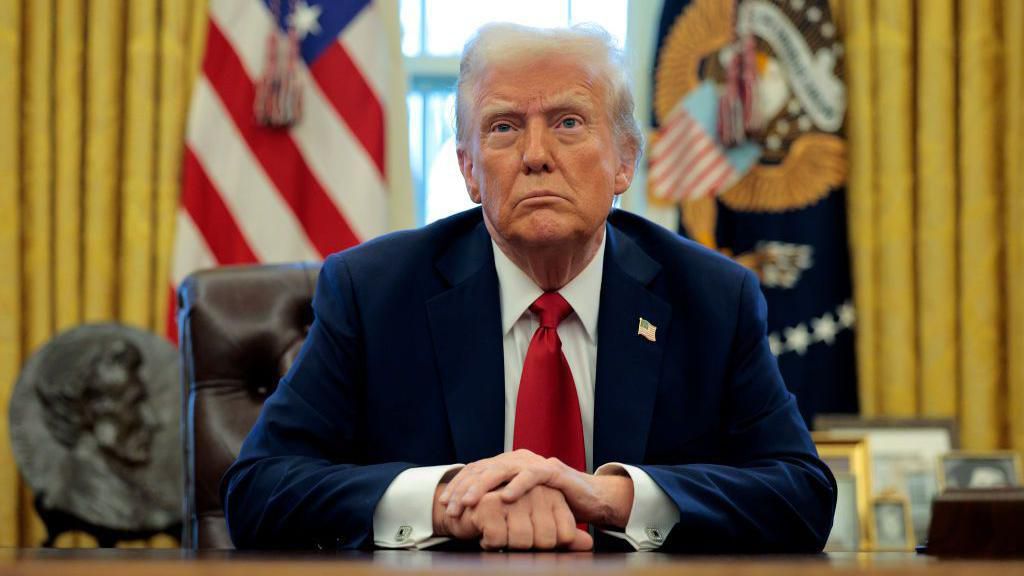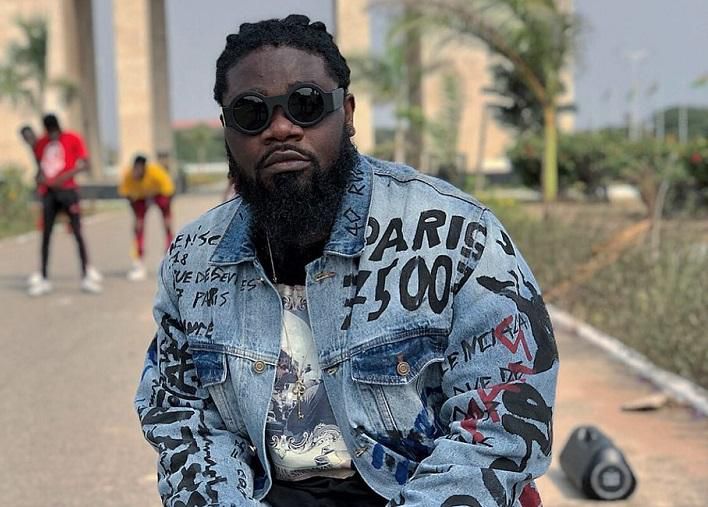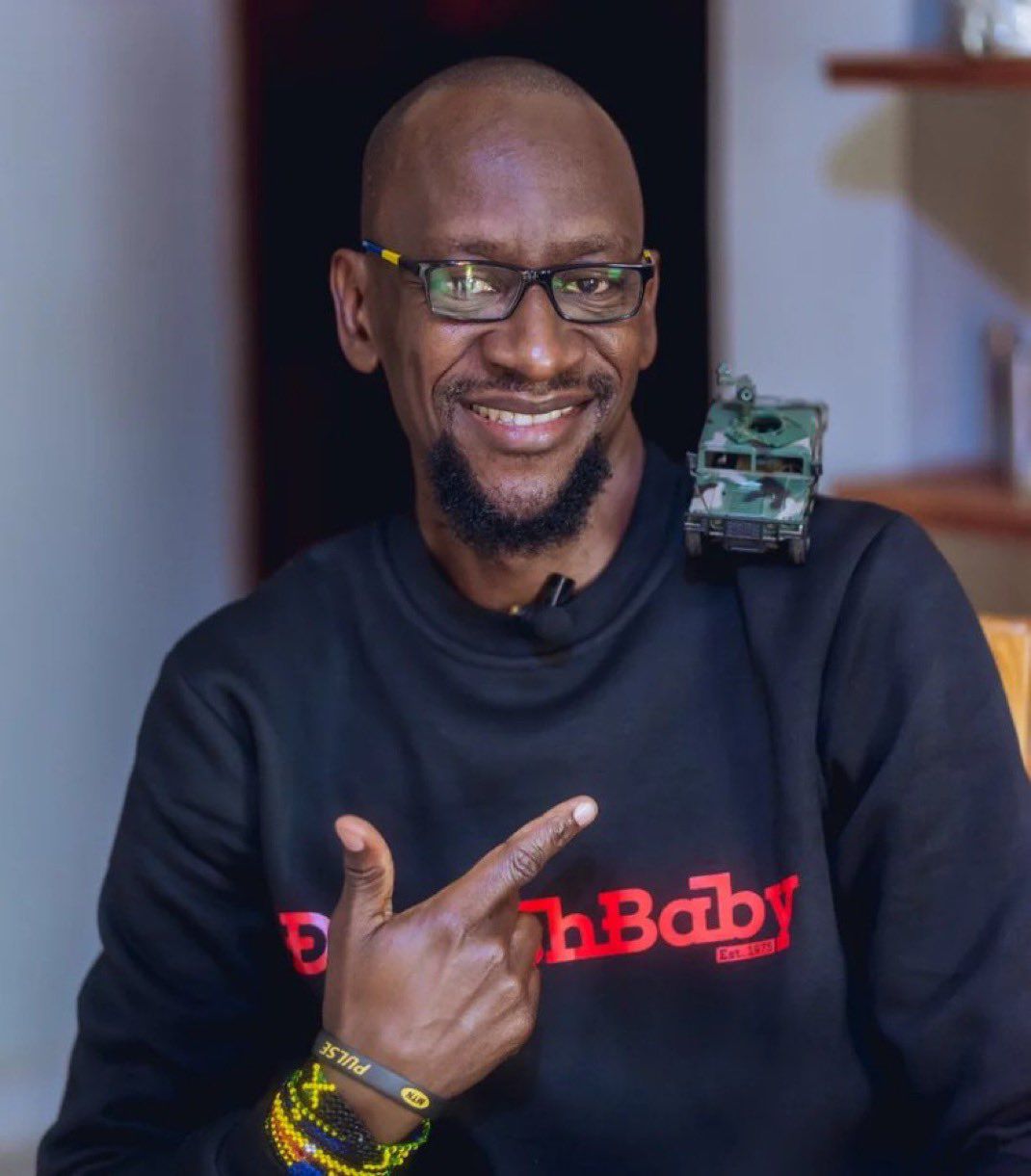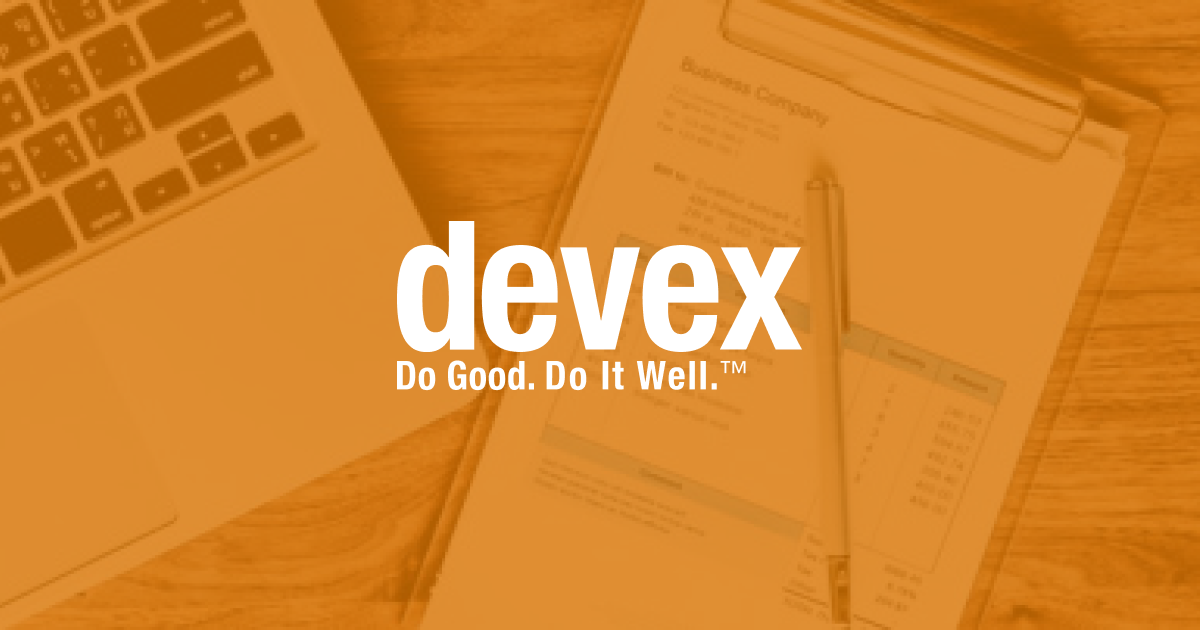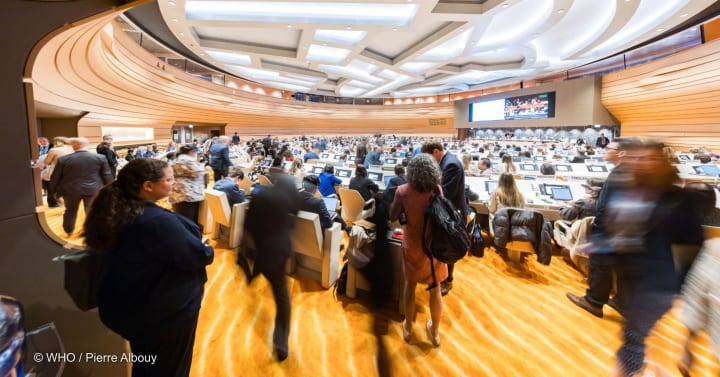
As the 78th World Health Assembly draws to a close and delegates head home, : What actually got done — and what’s next for the World Health Organization?
Like many of you, we spent the week frantically moving between the United Nations headquarters in Geneva, known as “the Palais,” and crowded side events scattered across the rainy city. This year’s WHA came with an unmistakable sense of urgency. With , we saw no shortage of ideas for doing more with less.
On a brighter note, the assembly delivered some major decisions. One big win: , with member states agreeing to increase their assessed contributions by 20%. Still, plenty more money will be needed to close the organization’s enormous funding gap.
Countries also adopted the historic pandemic treaty on Tuesday morning. Precious Matsoso, the co-chair of the Intergovernmental Negotiating Body, told us during a Devex event on the sidelines of WHA that even though they had to work through the night, countries were determined to push through to the finish line — with just a few paragraphs left to finalize.
Though the signed agreement was a bright spot at a somewhat subdued WHA, the work is far from over. In fact, some at WHA described this as simply “the end of the beginning.” , or PABS, annex to the agreement. The annex aims to ensure countries that share data on pathogens for the development of tests, vaccines, and treatments reap the benefits. But the issue has proven to be quite contentious.
James Love, director of Knowledge Ecology International, noted that , largely because other sections didn’t deliver on that front.
“I think it's a failure in a lot of ways to deal with equity that you end up having to negotiate over the access to this database to get equity,” he said.
Health experts are — clearing the path for countries to begin ratifying the treaty, which only comes into force once 60 countries sign on. In the meantime, nations can start preparatory work in areas such as health systems and workforce strengthening, Matsoso said.
With the pandemic treaty adopted, what's next?
Landmark pandemic treaty adopted despite pushback by some countries
The withdrawal of the United States from foreign aid — among other official development assistance, or ODA, cuts — has struggling to find financing, said Kinz ul Eman, chief executive officer of the Dopasi Foundation in Pakistan, during a Devex WHA side event. Her organization’s programs were abruptly cut when the money disappeared, often . For example, one woman ul Eman spoke with, who has difficulty walking, used to have treatment for drug-resistant tuberculosis delivered to her doorstep. Now, she must travel to a facility some 700 kilometers (more than 400 miles) away from her to get her medicine.
Elisha Dunn-Georgiou, who leads the Global Health Council — which is suing the Trump administration for the dismantling of foreign aid — echoed this sentiment, stressing that even under a future administration, the current USAID crisis is likely to leave lasting scars.
“These are human beings who have suddenly had the health security blanket ripped out from under them,” she said.
Michel Kazatchkine, former head of the Global Fund to Fight AIDS, Tuberculosis and Malaria, said he’s concerned that, faced with sudden funding cuts, every agency will work in silos, with agencies cutting staff and setting their own objectives. He warned
“That’s not a reform,” he said. “We need a rethinking of global health.”
Martin Griffiths, the former U.N. emergency relief coordinator, said he’s concerned that the U.N. more broadly is for the future that demonstrates its usefulness. The current quest for savings, he said, is just “about cuts. That’s not about reform. I think that’s wrong.”
Why fixing health after US cuts needs more than 'cosmetic changes'
Former UN relief chief says world body's reforms lack vision
What the incoming head of WHO's emergencies program sees in its future
Speaking of the U.S., did anyone else notice that WHO officials hardly spoke directly about the Trump administration’s aid cuts? Rather they stuck to talking about overall ODA reductions.
But . In a video address, U.S. Secretary of Health and Human Services Robert F. Kennedy Jr. pitched a “new era of cooperation,” inviting health ministers to join the U.S. in creating new institutions or revisiting existing “lean, efficient, transparent, and accountable” ones.
. The country announced its intention to withdraw from WHO back in February, just weeks after Trump’s executive order signaled the same move for the U.S. Soon after, Argentina’s U.N. mission made it official in a letter to the secretary-general.
But a coalition of Argentine NGOs is urging WHO’s director-general to block the move, arguing it could leave the country vulnerable to future health threats. The catch? The WHO Constitution doesn’t say anything about how — or whether — a country can actually leave. , which would take it up at its 158th session in early 2026 and report back to next year’s WHA.
NGOs ask Tedros to reject Argentina's move to withdraw from WHO
US still wants global health cooperation, but not through WHO
WHO has asked member states for permission to — warning that without the extra cash, it may have to cut staff based on contract type or, worse, face insolvency.
The agency hopes to . Just one slight problem.There’s no guarantee that money is coming. The U.S. announced plans to withdraw before paying its $260 million in dues for 2024-2025 — leaving WHO in a serious financial crunch.
During the WHA committee discussion, Norway backed WHO’s request, saying . But the country’s delegate warned this won’t address the root cause of WHO’s funding crisis, and urged member states to ensure WHO works “within its means and resources.”
Member states allow WHO to use reserves for salaries and severance
Who’s funding the World Health Organization? (Pro)
+ If you value our reporting, then ! You’ll get timely funding insights and insider reporting, members-only briefings, exclusive access to the stories and conversations shaping the future of global development — and you’ll help keep essential journalism open for others. Try it out today with a 15-day free trial, and check out some of the content exclusive to Pro readers.
This is a big year for noncommunicable diseases — such as cancer, diabetes,chronic respiratory diseases, and mental health. While the burden of these diseases and conditions are growing in countries around the world, .
But countries are expected to sign a political declaration with commitments at an upcoming high-level meeting during the U.N. General Assembly in September. A draft of these declarations was released in the lead-up to WHA. While . That includes a lack of concrete accountability mechanisms and no specific references to industries such as fossil fuel — which is driving air pollution.
“Going forward we will be making a series of recommendations to give the Declaration more teeth,” the NCD Alliance’s Alison Cox said in a statement.
Noncommunicable disease political declaration needs ‘more teeth’
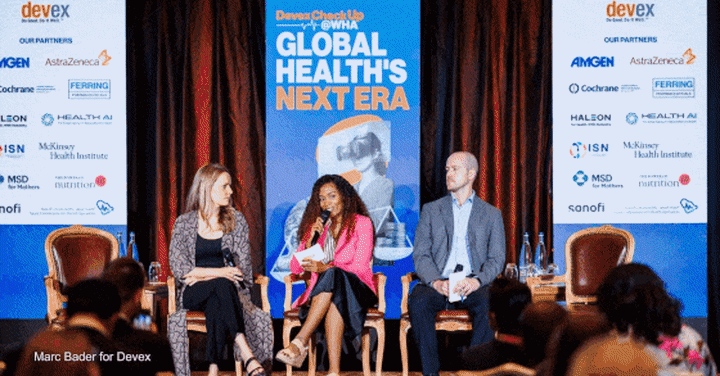
Missed our event? Don’t worry, all of the sessions are available to watch via YouTube.
African governments must prioritize increasing domestic health investments amid shrinking international aid and rising economic pressures, say Kalipso Chalkidou, WHO’s director of health financing and economics, and Donald Kaberuka, former president of the African Development Bank.
Maybe not, but many are trying to think through how a time of global aid chaos can lead to opportunity in the future.
With global health funding under pressure, that prioritizes domestic commitment and rapid, locally driven pandemic response.
Artificial intelligence holds major promise to alleviate some of the burdens health workers face. But first, it will have to overcome persistent challenges of access, scale, and sustainability, health experts say.
+ Explore our dedicated page for all of the reports, discussions, and insights from WHA78, and sign up for our weekly global health newsletter Devex CheckUp.
